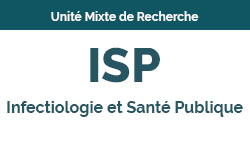Prophylactic phage administration reduces Salmonella Enteritidis infection in newly hatched chicks
Résumé
Salmonellosis outbreaks are global issues primarily associated with the consumption of poultry products, which may be infected with Salmonella. The use of lytic bacteriophages could be a safe and effective approach to reduce Salmonella prevalence in poultry and subsequently the incidence in humans. This study examined the value of prophylactic phage treatment on Salmonella levels in chickens and the effect of such treatment on their overall gut microbiome. We also investigated phage persistence in vivo and resistance emergence against the six-phage cocktail used. The preventive potential of phages was evaluated on 200 chicks by administering phages via drinking water for 6 days after hatching, followed by the Salmonella Enteritidis challenge on Day 7. The results showed that up to 4 days postinfection, phages had a preventive effect by significantly reducing Salmonella colonization in ceca by three logs. Furthermore, the phage cocktail did not induce dysbiosis, although variations in microbiota in terms of microbial composition were observed between conditions, with the Enterobacteriaceae family being impacted. However, the phage cocktail did not induce a long-term effect, with Salmonella levels rebounding 8 days after phage treatment was stopped. Overall, our data show that phage prophylaxis can reduce Salmonella colonization and explore ways of improving the effectiveness of phages in limiting infections throughout poultry production.
Domaines
Microbiologie et Parasitologie| Origine | Fichiers éditeurs autorisés sur une archive ouverte |
|---|---|
| licence |




